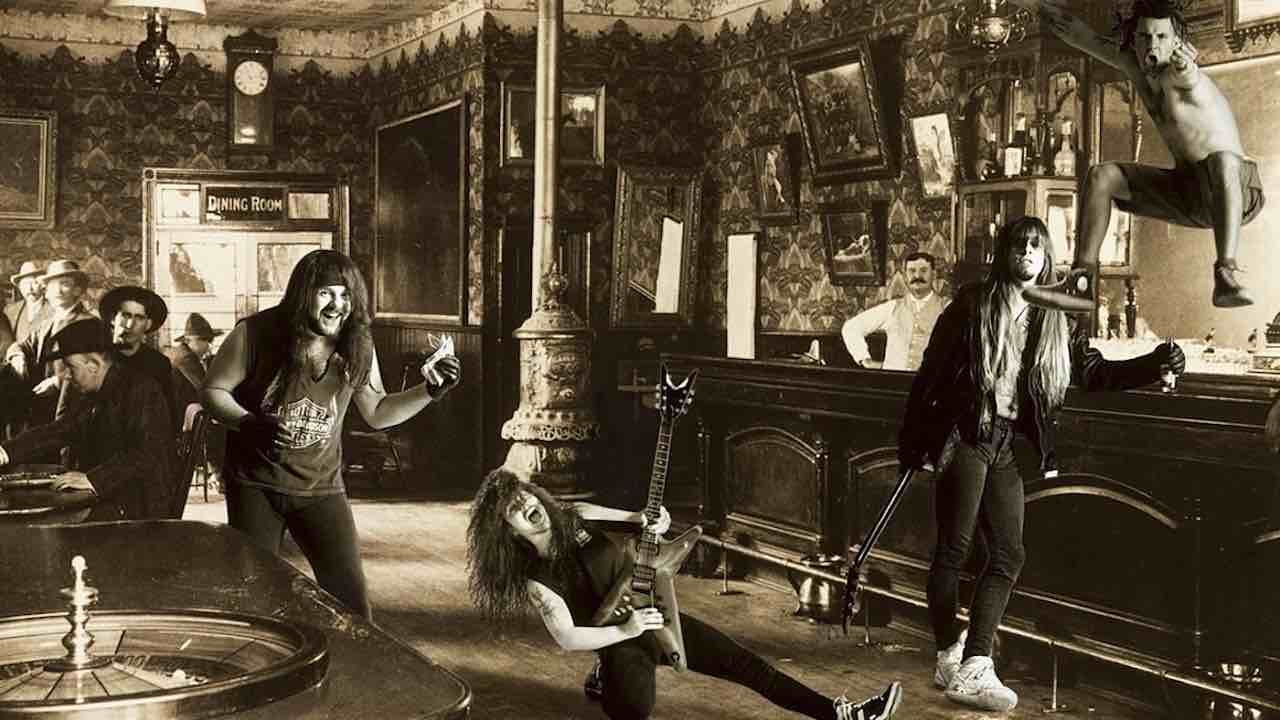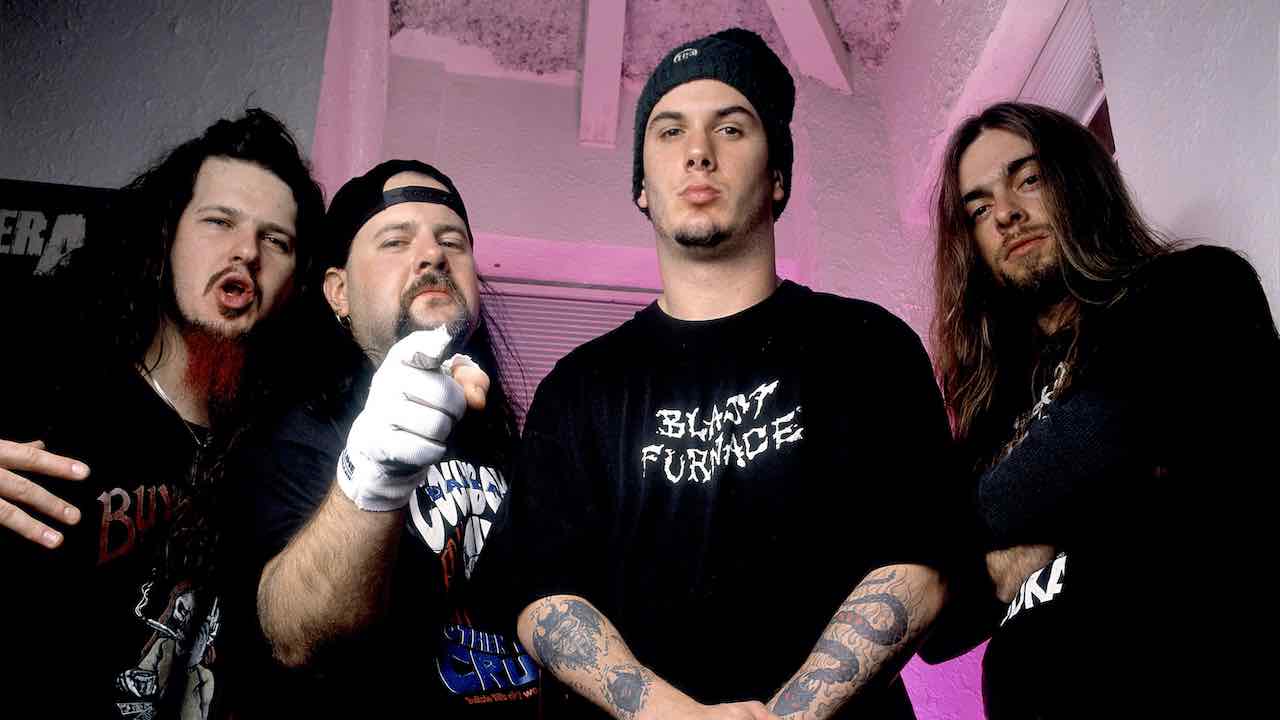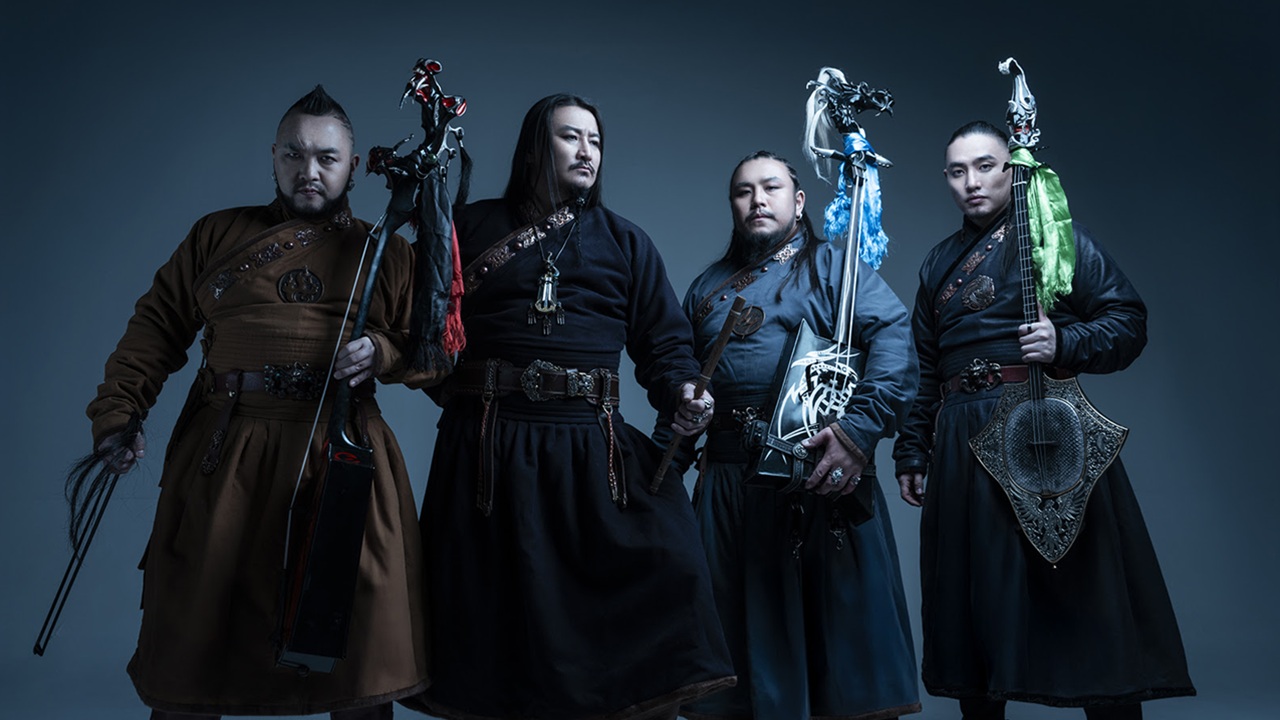How Pantera invented 90s metal with Cowboys From Hell
Just when the world thought metal was on its last legs, four brawlers from Texas arrived with an album that nobody saw coming...

Select the newsletters you’d like to receive. Then, add your email to sign up.
You are now subscribed
Your newsletter sign-up was successful
Want to add more newsletters?
For most metal fans, the Pantera story began with the release of Cowboys From Hell, but in fact the band had been active for a full decade prior to that album’s completion. Formed in Arlington, Texas, in 1981 by teenage brothers Vinnie Paul and ‘Diamond’ Darrell Abbott (later to be known as Dimebag), the band began life as a covers band, performing naïve but impassioned versions of their favourite songs by Van Halen, Judas Priest and Def Leppard, just as the glam and hair metal explosion was in full effect.
Fronted by original singer Terry Glaze, Pantera dedicated themselves to playing live and honing their craft from the very beginning and soon earned a strong enough reputation to begin releasing albums. Their first three full-length efforts – Metal Magic, Projects In The Jungle and I Am The Night – were spirited but unremarkable affairs, but it was with the departure of Terry and the recruitment of Louisiana-born vocalist Philip Anselmo that the true Pantera began to emerge.
“Three albums into it, we wanted to get heavier, but the singer we had at the time didn’t want us to go in that direction,” Vinnie Paul told Metal Hammer in 2010. “Terry always wanted to do more of a David Lee Roth, poppy-type thing, but we were falling in love with Metallica and Slayer and stuff like that, so when we brought Phil [Anselmo] on board we went a little more towards that stuff. After we finished the next album, Power Metal, we realised that we weren’t wearing the clothes we wanted to wear and that we wanted to strip it all down. The groove thing was the most important element in everything and that’s what really set us apart from the thrash metal bands and the plain old rock’n’roll bands. Our crowds were becoming more intense too.”
- Pantera: how an ex-glam band from Texas redefined metal
- The Top 10 best albums of 1990
- Every Metallica album ranked from worst to best
- Paul Gray: the life and death of Slipknot’s quiet genius
As the 80s drew to a close, metal was beginning to run out of commercial steam, which in turn led to dwindling creative returns, as the grunge scene in Seattle began to draw media attention away from traditional heavy music. However, despite their clear and proud adherence to old-school metal values established in an earlier age, Pantera defied the odds and secured themselves a major label record deal.
Stranded in Texas due to freak weather conditions, Atco Records man Mark Ross saw the band perform and was so impressed by the power and intensity of their live show that he immediately set the wheels in motion to add them to the label’s roster. Having already been turned down by countless American record labels, Pantera were understandably thrilled to be receiving some long- overdue recognition for all their hard work, and put the resulting energy and excitement into the creation of some truly devastating new material.
“We had really honed our skills,” said Vinnie. “We were a machine and we played really, really tight together and we had a lot of confidence. We felt like a freight train that couldn’t be stopped. We put out our first record when I was 17 and Dime was 15. As we kept growing we kept getting better and kept pushing each other to another level. When we started writing songs for Cowboys From Hell, we felt like the magic was there. We’d been turned down by every record company in the States, so we were angry and that all came out in the music! We saw what our new songs were doing to people, to our crowd. It was driving people crazy. They couldn’t wait to hear us play Cowboys From Hell or anything off that record, even before we recorded it, so we knew we were onto something special…”

Ready to make an immediate impact, Pantera were eager to improve on the demo versions of future classics like Psycho Holiday, Domination and Cowboys From Hell itself and produce an album that would ensure their translocation from relative obscurity to international renown. With that in mind, as a new decade approached, the band headed to Pantego Sound Studio in Arlington, Texas, which was owned by Vinnie and Darrell’s father, to commence work on their fifth album with renowned producer Max Norman, who had previously sprinkled magic over albums by Ozzy Osbourne, Megadeth and Savatage among many others. Lined up to facilitate Pantera’s every sonic whim, Max seemed the perfect choice, but unfortunately the collaboration fell apart before it had even begun.
Sign up below to get the latest from Metal Hammer, plus exclusive special offers, direct to your inbox!
“Two days before we started recording, Max got a bigger and better offer from [hair metal outfit] Lynch Mob,” explained Vinnie. “So he bailed on us and went and did a record with them instead, and so we were stuck without a producer. Our A&R guy said, ‘How about this guy Terry Date?’ He’d done the Soundgarden record (1989’s Louder Than Love), which we were all really blown away with, and he’d just done the new Overkill record, so we said, ‘OK, let’s bring him down!’ He was a little shy and reserved at first, but after we got to know each other and he could see how hungry the band was, he really went the extra mile to help us to get what we were looking for out of the sound.”
With Terry installed as co-producer, Cowboys From Hell began to take shape, and the sheer ferocity of Pantera’s ever-evolving sound began to become apparent. Two decades later, the likes of that brutally catchy title track, the epic and haunting Cemetery Gates and the lurching riff-riot of Clash With Reality still sound ridiculously exciting. Back in 1990, the impact of this fearless and ferocious update of classic heavy metal was huge as people were blown away by the immense power and originality of songs like the crushing Primal Concrete Sledge.
“That song was an accident, basically!” said Vinnie Paul. “We’d recorded the 10 or 11 songs we wanted to put on the record. I was taking my drum set down when I came up with that pattern between the toms and the hi-hat, with the kick drums running underneath it. Dime heard it and he came running round the corner saying, ‘What the fuck is that?’ I said, ‘It’s just a new beat I came up with’ and he said, ‘Don’t take the drums down! I got a riff, dude! That’s too fucking badass! We can’t let that one go…’ Then Terry came round the corner and said, ‘Guys, we don’t have time for this! I have to go to Connecticut in three days to mix the record!’ but Dime said, ‘No, man, we have to do this!’ That’s why the song is only two minutes long, because we didn’t have time to work on it. It’s a short, powerhouse tune and it gave the album a lot more muscle and a lot more heaviness.”
Unleashed in July 1990 as grunge and alternative rock started to supplant metal as the music industry’s bit of rough, Cowboys From Hell was one of very few major-label metal records released that year. Seemingly carrying the torch for the entire scene, as even well-established thrash metal acts like Metallica and Megadeth began to simplify and soften their sounds, Pantera were instantly embraced by disenfranchised metalheads who could hardly fail to relate to the album’s cover shot which portrayed the four members of the band rocking out in an austere 19th-century saloon; diehard outsiders gatecrashing the most unlikely of social occasions.
“At that time, every metal band in the United States came from either LA or New York and Seattle had just come on the scene too, but we were this band from this hillbilly country state that made people think of ZZ Top and country music,” said Vinnie Paul. “We were out of place. Cowboys From Hell started off as a t-shirt design that we had, and we loved the title and everyone loved the shirt so much that we decided to write the song. We wanted the same vibe on the album cover, so here we are, this heavy metal band in this old saloon from 1846 with these old cowboys around the bar, and we’re totally out of place. When we did the photoshoot, it was before they had Photoshop and all that, so they had to cut the photos out and actually glue them onto that old picture, and if you look real closely at it you can see where they fucked up Dime’s headstock and had to cheat! If you look with a magnifying glass, you’ll see it! It’s pretty funny. Somehow it turned out great, though!”
Refusing to take their collective foot off the accelerator, Pantera tore into a gruelling touring schedule like men possessed, spreading the word about their state-of-the-art sound far and wide and proudly capitalising on the fact that, as a new decade dawned, virtually no one else was playing metal with such verve and passion. Having fulfilled their potential in the studio, the band were doggedly proving to their major label paymasters that the investment had been worthwhile. What no one realised as Cowboys From Hell picked up momentum and started to sell, was how huge Pantera would soon become.
- Best record players: turntables your vinyl collection deserves
- The best bluetooth speakers you can buy right now
- Best headphones for music: supercharge your listening
- Take a look at the best true wireless earbuds
“I don’t know if we knew that we were going to be really successful,” mused Vinnie Paul. “But we knew that at least we had an opportunity, our shot. We knew that if we wanted to get to where we wanted to be, we had to have that big major label machine behind the band, so we held out for the deal. Then one day we got a phone call from the label in LA and we were told that we’d sold over 100,000 units. It was a special time, no doubt about it. I don’t think any of us thought we’d made it just because we had a record deal. We knew we had to work really hard for it.”
With very few exceptions, metal bands had a torrid time during the early 90s, but thanks to Cowboys From Hell and the men who made it, the genre was able to keep moving forward, inspired by Pantera’s groove-driven, mutant thrash attack and their odds-defying conquering of the mainstream.
“It’s funny, because when we put those records out you couldn’t hear those songs on the radio, but now I’ll go to a football game or a soccer game and they’ll play Cowboys From Hell, and you can hear Cemetery Gates on the radio like it’s a brand new song!” said Vinnie Paul. “They still sound fresh and they sound good to this day. It took the four individuals in the band to make that record. Our crew at the time were real important too, and always believed in us and even worked for nothing. Terry Date was a big part of it too, and that’s why we kept him around for so many years. It was a special time and it took all those people to make it happen.”
Published in Metal Hammer #211

Dom Lawson began his inauspicious career as a music journalist in 1999. He wrote for Kerrang! for seven years, before moving to Metal Hammer and Prog Magazine in 2007. His primary interests are heavy metal, progressive rock, coffee, snooker and despair. He is politically homeless and has an excellent beard.
